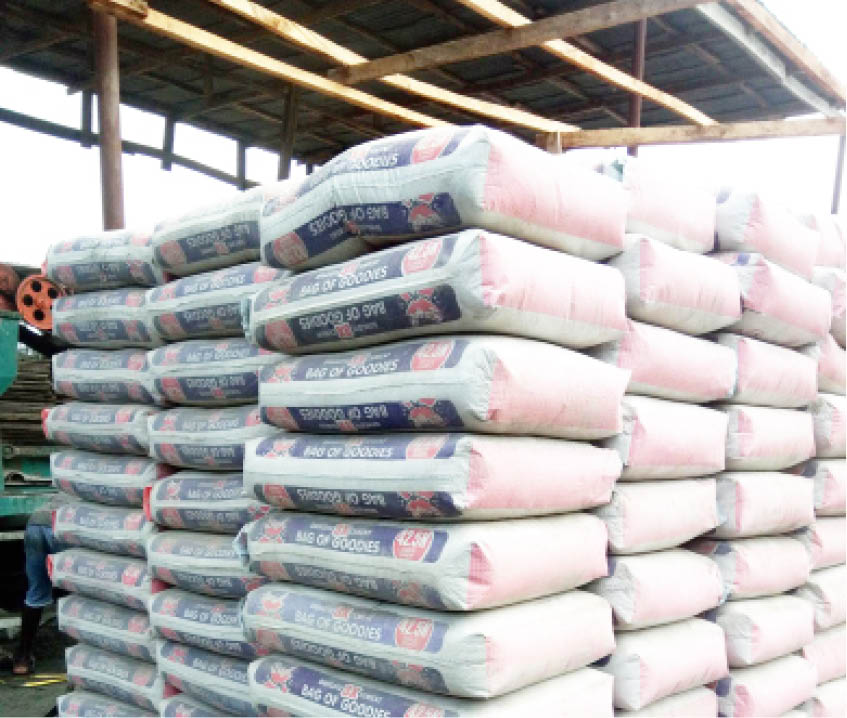The Real Cost Of Cement In Nigeria: An In-Depth Analysis
The construction industry in Nigeria has seen an unprecedented boom in recent years, driving a significant demand for cement. As one of the most vital components in construction, the cost of cement in Nigeria has become a topic of great interest among builders, contractors, and even homeowners. Understanding the various factors influencing this price is crucial for anyone involved in the industry, as fluctuations can impact project budgets and timelines.
With Nigeria's economy experiencing both growth and challenges, the cost of cement has not remained static. Factors such as inflation, transportation costs, and government policies play a crucial role in determining the price per bag of cement. In this article, we will explore the current trends in cement pricing, the reasons behind these fluctuations, and what they mean for the average consumer.
Furthermore, we will look into the regional variations in cement prices across Nigeria, providing insights for potential buyers and investors. This comprehensive examination will equip you with the knowledge needed to navigate the complexities of cement pricing in Nigeria today.
What Factors Affect the Cost of Cement in Nigeria?
The cost of cement in Nigeria is influenced by a multitude of factors. Here are some of the primary contributors:
- Raw Material Availability: The availability of raw materials such as limestone, clay, and gypsum can significantly impact production costs.
- Transportation Costs: The logistics involved in transporting cement from factories to distribution points can vary, affecting overall pricing.
- Government Regulations: Policies regarding import duties and taxes can also influence the cost structure.
- Market Demand: A surge in construction activities can drive prices up due to higher demand.
- Global Cement Prices: Fluctuations in global cement prices can create a ripple effect in local markets.
How is Cement Priced in Nigeria?
Cement pricing in Nigeria is not uniform across the country. Various factors including region, supply chain efficiency, and competition among manufacturers lead to price variations. Generally, prices are set based on the following:
- Cost of Production: This includes raw materials, labor, and overhead costs.
- Distribution Costs: Transporting cement to various locations can add to the final price.
- Profit Margins: Manufacturers will set prices to ensure they are profitable while remaining competitive.
What is the Current Cost of Cement in Nigeria?
As of the latest data, the cost of cement in Nigeria varies significantly depending on the location and brand. On average, a 50kg bag of cement can range from:
- ₦3,200 to ₦4,500 in major cities like Lagos and Abuja.
- ₦3,000 to ₦4,000 in rural areas and less populated regions.
These prices are subject to change based on market conditions and other external factors.
Why Are Cement Prices Increasing in Nigeria?
In recent years, there has been a noticeable increase in the cost of cement in Nigeria. Several reasons contribute to this trend:
- Inflation: The general rise in prices across the economy affects the cost of cement.
- Increased Demand: With urbanization and infrastructural development, the demand for cement has skyrocketed.
- Supply Chain Disruptions: Issues such as road conditions and logistics challenges can lead to increased costs.
Are There Regional Differences in Cement Pricing?
Yes, there are notable differences in cement pricing across the various regions of Nigeria. Factors contributing to this include:
- Accessibility: Areas that are harder to reach or lack infrastructure may experience higher transportation costs.
- Market Competition: Regions with more manufacturers may see lower prices due to competition.
- Local Demand: High demand in specific areas can lead to price hikes.
How Can Consumers Manage Cement Costs in Nigeria?
For consumers looking to manage the cost of cement in Nigeria, here are some tips:
- Buy in bulk to take advantage of lower prices.
- Stay informed about market trends and seasonal fluctuations.
- Consider alternative materials for projects when feasible.
What Are the Future Predictions for Cement Prices in Nigeria?
While it is challenging to predict the exact future of cement prices in Nigeria, experts suggest that prices may continue to fluctuate based on the following:
- Economic Conditions: Economic recovery or downturns can impact demand.
- Government Policies: Any new regulations or taxes can affect pricing.
- Global Market Trends: Changes in international cement prices will influence local costs.
Conclusion: Understanding the Cost of Cement in Nigeria
In conclusion, the cost of cement in Nigeria is a multifaceted issue influenced by various factors, from raw material availability to government policies. By staying informed and understanding these dynamics, consumers can make better decisions regarding their construction needs. As the demand for cement continues to grow, being aware of pricing trends will be vital for anyone looking to engage in the construction industry in Nigeria.
```
Nostalgia Toys Of The 2000s: A Journey Back In Time
Beautiful Expressions: The Allure Of Women's Back Tattoos
Exploring The Von Erich Legacy: Understanding Their Net Worth


